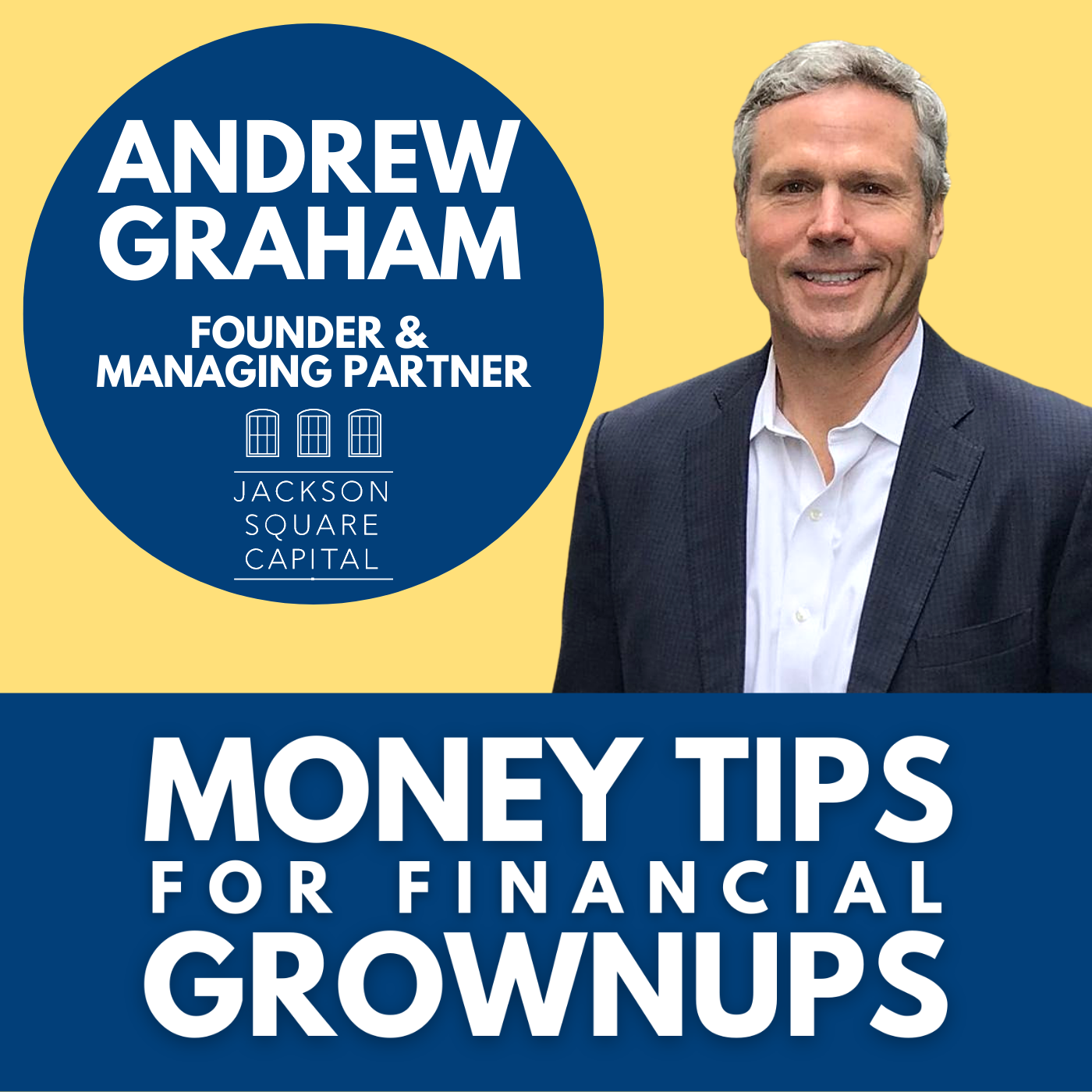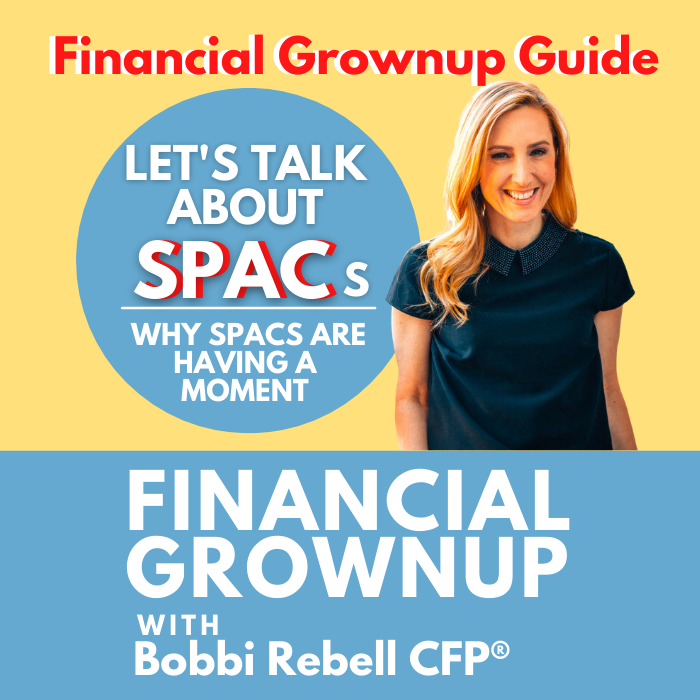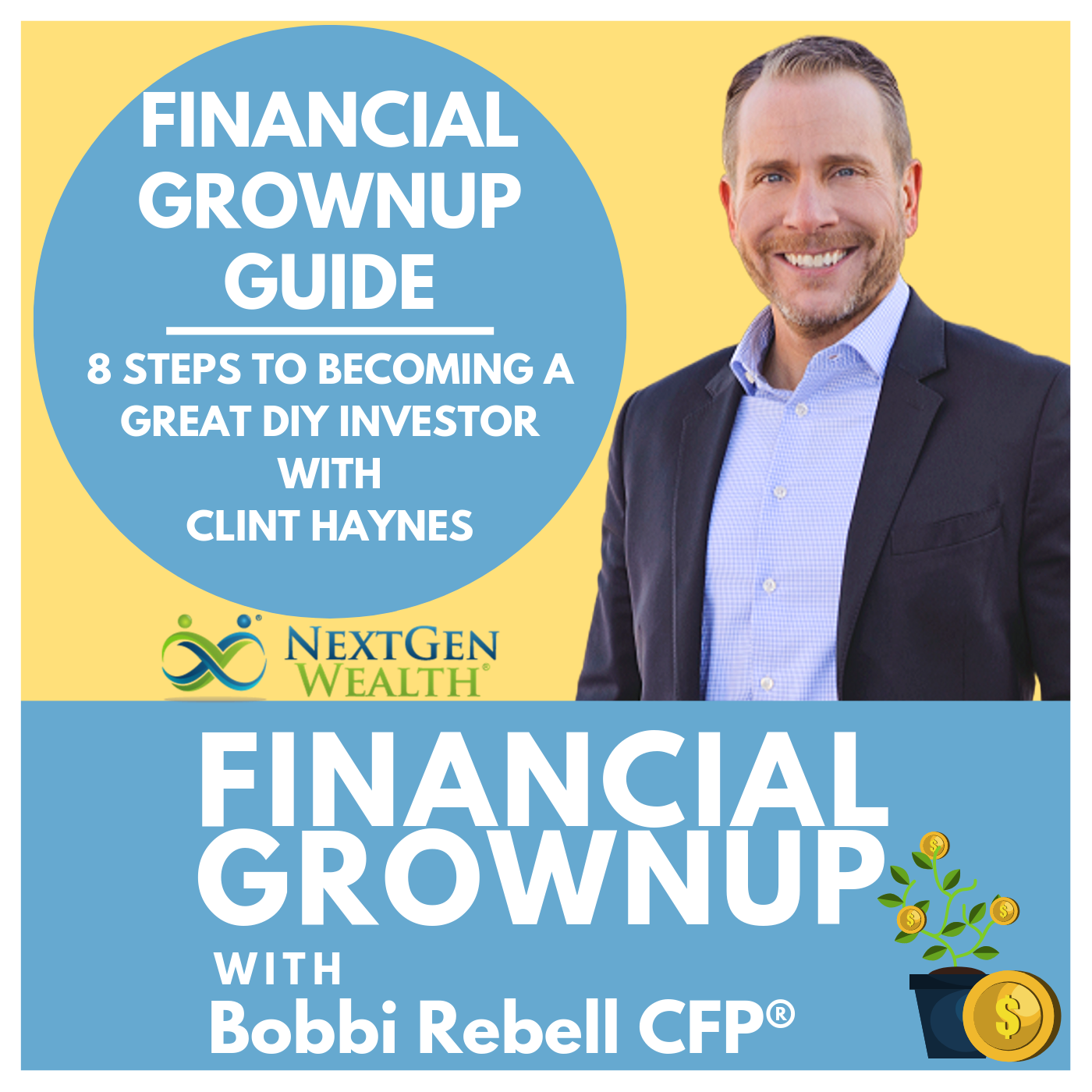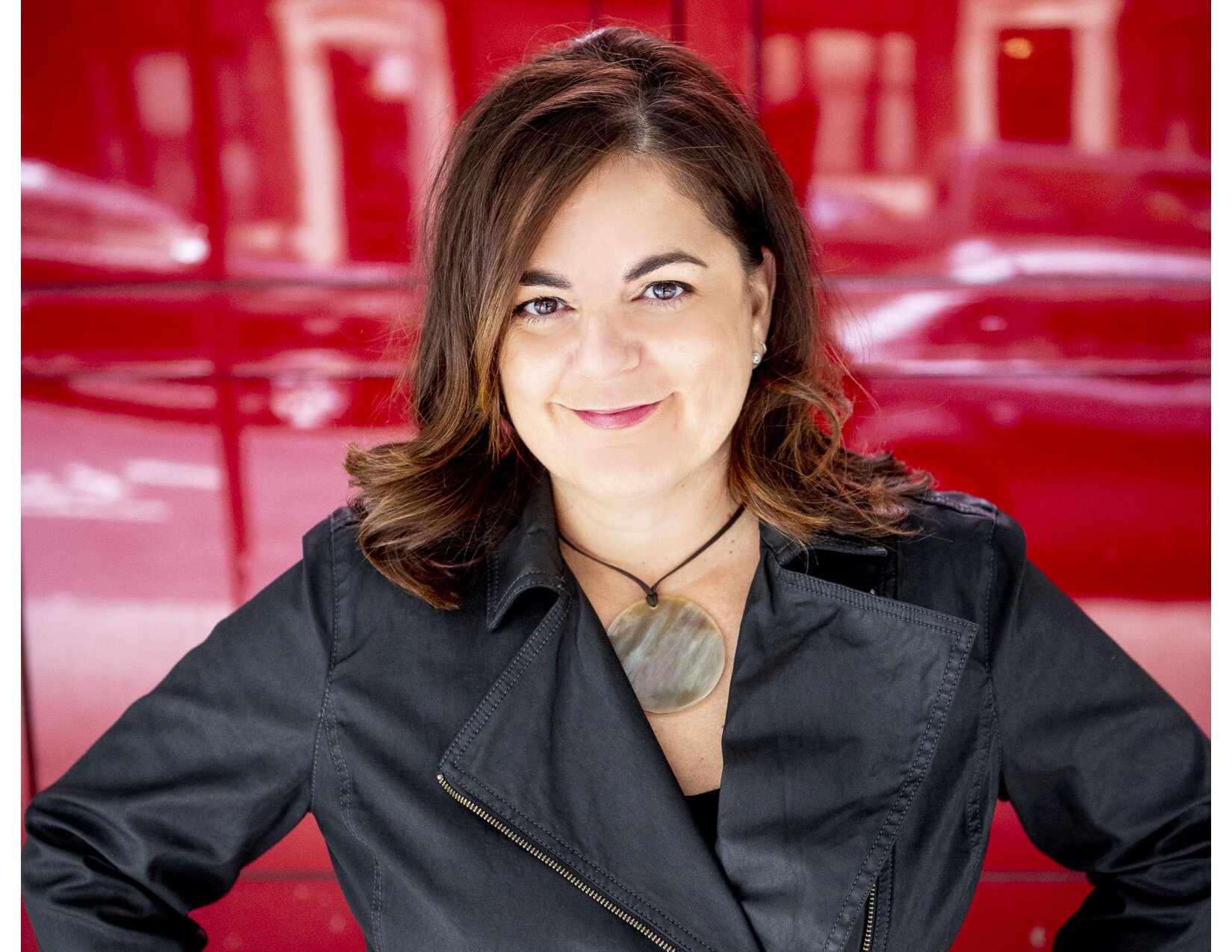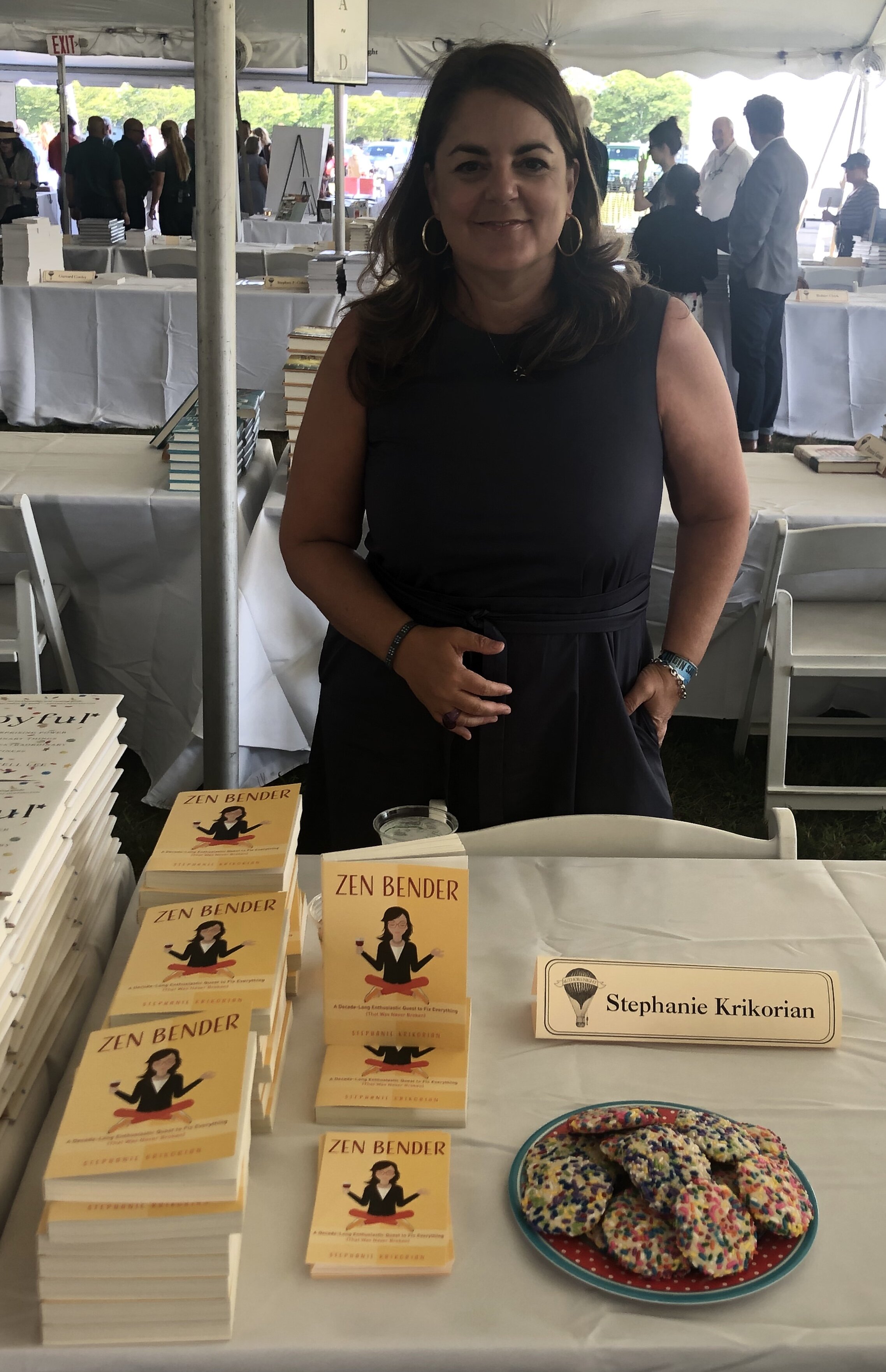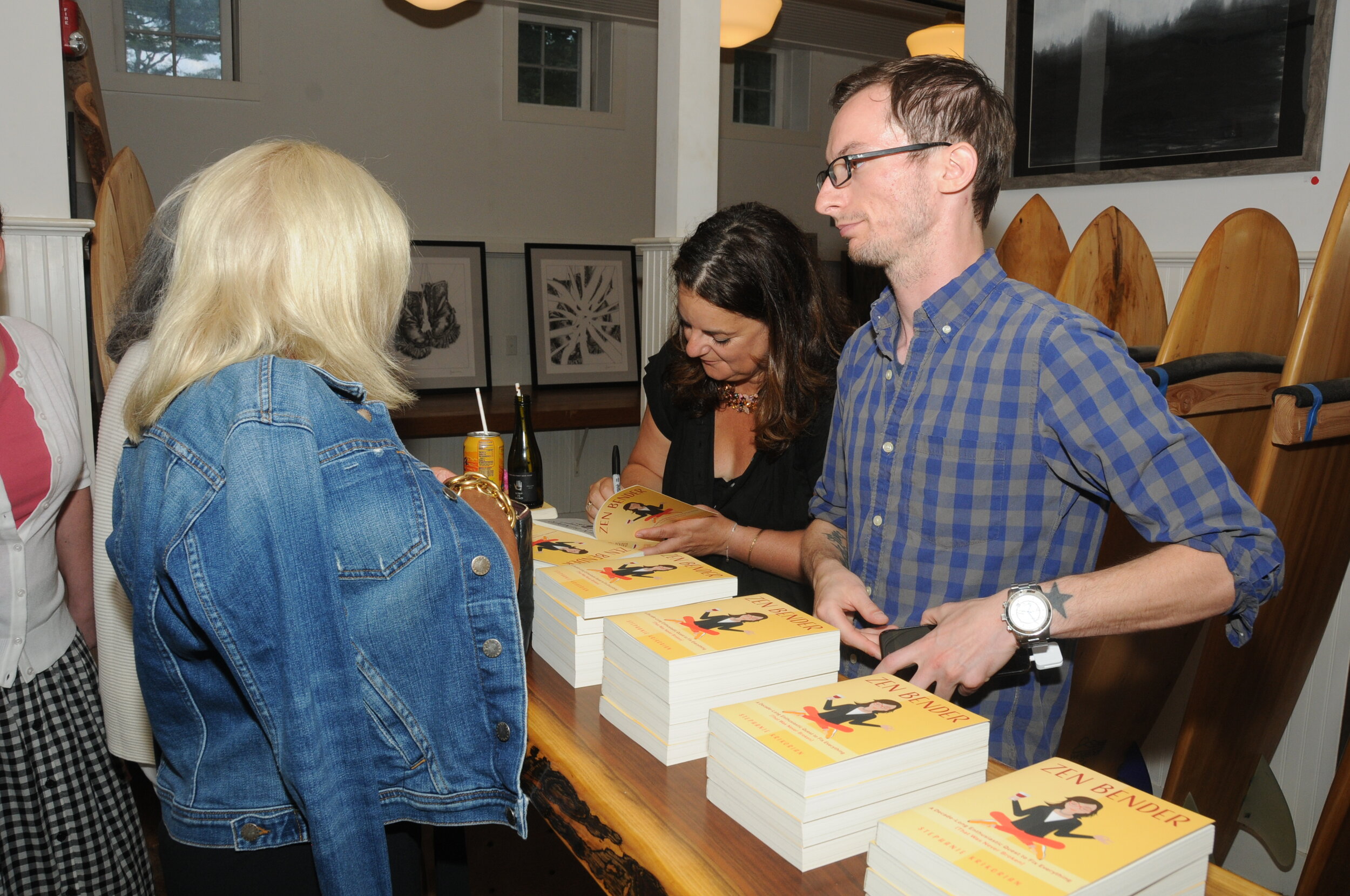Everyday we are seeing higher prices on everything from gas to the food we eat. But all is not lost. There are opportunities not just to cut costs as a consumer, but also to be smart as an investor. We talk with Andrew Graham of Jackson Square Capital for tips on how to navigate investing with inflation on the rise.
Follow Andrew!
Twitter - @jacksonsq_cap
LinkedIn - @jacksonsquarecap
Website - https://jacksonsquarecap.com
Follow Bobbi!
Instagram - @bobbirebell1
Twitter- @bobbirebell
LinkedIn- Bobbi Rebell
Website- http://www.bobbirebell.com
Did you enjoy the show? We would love your support!
Leave a review on Apple Podcasts or wherever you listen to podcasts. We love reading what our listeners think of the show!
Subscribe to the podcast, so you never miss an episode.
Share the podcast with your family, friends, and co-workers.
Tag me on Instagram @bobbirebell1 and you’ll automatically be entered to win books by our favorite guests and merch from our Grownup Gear shop.
Full Transcript:
Bobbi Rebell:
Hey, grown-up friends. A big thank you to so many of you that have already bought my new book, Launching Financial Grownups: Live Your Richest Life by Helping Your (Almost) Adult Kids Become Everyday Money Smart.
Bobbi Rebell:
This book was not easy to write because I had to get honest with myself about what was working with my teen and young adult kids and what was not working. And I also had to be prepared to share it with all of you.
Bobbi Rebell:
So, first of all, thank you for your support and your wonderful responses to it. There's definitely some things in there that you may not have been expecting to hear.
Bobbi Rebell:
By the way, I got a lot of help from my money expert friends and also financial therapists and parenting experts. I am really happy with how Launching Financial Grownups came out, even though it really was hard to be, like I said, that honest, and it was a lot of work, but I really loved doing it. And I'm really happy with how it came out.
Bobbi Rebell:
On that note, if you have not already, please pick up a copy of Launching Financial Grownups today. After you do, please share it on social media. Please leave a review on Amazon.
Bobbi Rebell:
Those reviews are super important because the algorithm picks up on them, and that can make the book a lot more visible to more people. So, I truly appreciate it, and I really also appreciate all of your support.
Andrew Graham:
With elevated levels of inflation, with higher bond yields, that's a recipe probably for outperformance in value sectors. And the value sectors presently are: financials, materials, and energy.
Bobbi Rebell:
You're listening to Money Tips for Financial Grownups with me, certified financial planner, Bobbi Rebell, author of Launching Financial Grownups, because, you know what? Grown-up life is really hard but, together, we got this.
Bobbi Rebell:
Hey, grown-up friends. I hope everyone's enjoying spring, wherever you are. It's a great time for a road trip, if you can afford the gas. And that is not the only thing with sky high prices. I mean, looking for a home these days can make even the most tenacious grown-ups feel like giving up.
Bobbi Rebell:
So, where is the upside? Well, there are investment opportunities here, and that's what we're going to talk about today. Our guest is Andrew Graham. He is the founder and managing partner at Jackson Square Capital. And it was really a privilege to be able to bring you his insights that he shares with his high-net-worth clients.
Bobbi Rebell:
One thing to pay special attention to in the interview is what he has to say about the kinds of banks that are going to outperform and why. We also talk about energy and why that could be a place for dividends and a hedge against inflation.
Bobbi Rebell:
Andrew also has some compelling things to say about the housing market and whether buying a home will become more affordable anytime soon.
Bobbi Rebell:
Listen closely. There's a lot to learn from this guy. Here is Jackson Square Capital's, Andrew Graham.
Bobbi Rebell:
Andrew Graham, you're a financial grown-up. Welcome to the podcast.
Andrew Graham:
Thank you. I'm glad to be on the pod.
Bobbi Rebell:
We're so happy to have you. So, let me just give a quick introduction. You're the founder and managing partner of Jackson Square Capital, an investment and financial advisory, out in San Francisco, one of my favorite cities.
Bobbi Rebell:
I asked you to come on because so many of our listeners are concerned about inflation. They go to the grocery store. They go to the gas pump. The prices are just frightening, more and more, but there's some upside to this when it comes to investing.
Bobbi Rebell:
And, so, I asked you to come and talk about some strategies and some sort of mindset that we can take to understand that there are things about inflation that can present opportunity and, certainly, in some ways, at least mitigate some of the damage that we're seeing in our day-to-day consumer life with some wealth management strategies. So, thank you for coming on.
Andrew Graham:
My pleasure. So, I can start with inflation, just really quick. For us, in our world, as an in investment manager, our visibility really extends. It extends six months, for sure. And then, the further you go, the less clear things become, but we can kind of see out nine months and feel pretty good, forecasting nine months forward.
Bobbi Rebell:
Let's start with equity. Where are the best sectors, in terms of equity investments for your money, as inflation continues to be a concern?
Andrew Graham:
Yeah. I think the best places to be, in terms of maybe equity style, rather than growth, sort of tech-centric portfolios, we have ... These are all household names now over the last 12 years. Everybody's made sure they've owned plenty of them. It's been pretty apparent that that where ... that was the only game in town.
Andrew Graham:
But with elevated levels of inflation, with higher bond yields, that's a recipe probably for outperformance in value sectors. And the value sectors presently are: financials, materials, and energy.
Bobbi Rebell:
Okay, so let's break that down. Okay. So, let's start with financials.
Andrew Graham:
Banks have what's called ... make-most-of-their-money, the bulk of their money, on net interest margins. It's the difference between the rate that they borrow or receive their money from the Fed, and the rate that they earn on their loans.
Andrew Graham:
And, so, as short-term loans reset, they don't even need, really, to drive loan growth, although we see the beginnings of that happening in December and, again, here in Q1. They don't need to really get it out of loan growth. They can just reset their short-term loans, as they mature for those people rolling them over, and those loans at higher levels just reflecting where bond yields, short-term bond yields, are.
Andrew Graham:
So, again, deposits, they're not going to pay anything on deposits, let's assume. And they're going to be earning more for their loans. So, their net interest income, which is, again, the bulk of their earnings at a bank, is going to rise. And I see that going on for a while now.
Andrew Graham:
We, at Jackson Square Capital, have a preference for, sort of share takers, when it comes to the banks. And those are generally the regional banks, so not the super gigantic money centers that have been gobbling up community banks over the last, whatever, 20 or 30 years. It's the regional banks.
Andrew Graham:
And the ones that are most attractive, in our opinion, are the ones that are sort of high tech, high touch. And you can see them, just taking share in major markets like this one. So, in San Francisco where we sit, First Republic has been taking share for years. And we just see that continuing with lots of loan growth. So, we like First Republic, and we also like Silicon Valley Bank, also local. Again, taking share, lots of loan growth, lots of private equity cash, on the sidelines.
Andrew Graham:
And as that private equity money gets deployed in investments, they're going to make what they're called capital call loans, which are short-term loans. And, again, those will reset at higher rates.
Andrew Graham:
So, probably the bank that's the most sensitive to interest rates and that benefits the most, is Silicon Valley Bank.
Bobbi Rebell:
Interesting. And the second equity sector that you mentioned to pay attention to is materials. Tell us more about that and why.
Andrew Graham:
So, materials are going to have the pricing power, the ability to benefit from their own pricing power. They have relative ... for sort of fixed costs. Most of these plants are built out. Some of these chemical companies, for example, Olin. There are some big barriers to entry. Some of them are dangerous products to make, but they are very necessary, and they have mostly industrial uses.
Andrew Graham:
So, if we're right, and inflation stays elevated, and the cycle has further to go. That's the recovery cycle, and we think it does, and I'll go into that if you'd like. Then there's more upside for those companies, as they have pricing power. And then there's an industrial, sort of recovery, narrative that goes on as well.
Bobbi Rebell:
And the third area you mentioned was energy.
Andrew Graham:
We expect energy stocks to outperform over the next, that six to nine-month window we discussed, and maybe beyond. There's some structural supply issues going on in the industry where, either from political pressures or pressure from shareholders to return capital, many of these oil and gas exploration and production companies, for example, are being incented to return capital to shareholders, rather than develop new production and drill new wells, for example.
Andrew Graham:
So, we expect, even if ... And we do expect U.S. oil and gas production to rise this year, in 2022, but we don't see it matching demand levels. So, look for elevated WTI crude prices, and beneficiaries there include the majors that pay big dividend yields, like the Exxon and the Chevron of the world, of course. And then in exploration and production companies, maybe like Marathon Petroleum, Ovintiv, also, is a midcap name that stands out.
Andrew Graham:
If oil prices stay just above $65, modeling that out, based on their ... based on Ovintiv's free cash flow generation from the past, they're going to have the ability to pay back the entire market cap of the company within five years. So, lots of opportunity there.
Bobbi Rebell:
Yeah. And I think, with respect to stocks in general, you've talked about the importance of paying attention to companies that give money back to shareholders, whether that be in the form of stock buybacks or in dividends.
Bobbi Rebell:
And that is something that, at the end of the day, money is money, and they're giving people money. That's something that investors should pay attention to.
Andrew Graham:
I think so. I would say, with one qualifier, I think it works best in that energy sector. And the reason is, is that the decarbonization efforts are there for a reason.
Andrew Graham:
By the time you get out, 10 years, and again, I know we wish it was a shorter window, but saying you move out further and further, demand for alternative energy sources actually starts to kind of come together. The demand is there now. The problem is, there's just not the capacity to meet it. And, so, demand chooses the old forms right now. But as the substitutes become available, I think we'll see a shift.
Andrew Graham:
So, in most cases, our preference, when I was talking about banks, I chose two banks that don't return capital to shareholder in any big way. As a matter of fact, they raise capital. And the reason why our preference there, is those are longer-term investments. Both of those banks have outperformed the large cap money centers over the last two decades, and we expect it to continue in the current environment, probably at an accelerated rate because they do have loan growth.
Andrew Graham:
But I think an energy return of capital is a good plan, and it's a good thing, whether it's in the form of dividends or share repurchases and just, what are you going to do with all that free cash flow generation? So, it's got to go to the shareholders. And it's a meaningful way, I think, of hedging against elevated rates of inflation.
Bobbi Rebell:
Let's just touch quickly on real estate because there's so many people frustrated by higher home prices. And look, we have to be realistic. You probably aren't going to make a ton of money if you're buying a home, just to live in or as an investment, anytime short term. But that doesn't mean it's not an area that people should be paying attention to.
Andrew Graham:
Yeah. If you look at the supply and demand within the housing world, there's just ... There is limited supply, and demand has been sort of running at a accelerated clip since there was glimmers of hope the pandemic might be ending.
Andrew Graham:
So, you've seen some sharp upticks in almost all geographic areas in this country. And I don't know if that's going to slow down here in the near term. So, we're kind of modeling in 12% home price appreciation for this year. And we think the economy can withstand that kind of appreciation. So, I don't think the affordability factor is going to mean much here in the near term.
Andrew Graham:
And in the short term, as bond yields rise, inflation's going up, so bond yields are rising. As bond yields rise, there's sort of a get-it-while-you-can attitude on the part of consumers to lock in their mortgage rates now, versus six, nine months, well into the future.
Andrew Graham:
So, you'll see, I think, accelerated pick-up in housing demand as, in the short term, as bond yields have already risen. And I think they can ... there's further room for bond yields to go higher.
Bobbi Rebell:
So, continued frustration for people looking to buy a home, but good news for real estate investors.
Andrew Graham:
I think so. Again, eventually, price cures price, but affordability, even though it's the worst it's been since the global financial crisis, affordability measures, they are nowhere near where they were leading into the global financial crisis.
Andrew Graham:
So, I don't think it's a cycle killing kind of thing, like I said before. And, so, yeah. It's going to be competitive, I think. Home-buying, home shopping is going to be competitive for the near term, and maybe even accelerate here, as bond yields have gone up, and people feel a need to get it done now, rather than later.
Bobbi Rebell:
Thank you so much. Andrew, where can people learn more about you and Jackson Square Capital?
Andrew Graham:
You can go onto our website, of course, which is jacksonsquarecap.com. I write a daily email, which I think helps me stay informed. It's called Morning Notes, and you can sign up there if you'd like to receive it, but happy to be of help today. Thanks for having me on. I've been told I have a face for podcasting, so this is such a [inaudible 00:15:05].
Bobbi Rebell:
You are a lot of fun to have on. Thanks, Andrew.
Andrew Graham:
Anytime.
Bobbi Rebell:
There was a lot to take away from that. You were probably tempted to take notes, but if you're a regular listener, you know don't have to. We always have you covered with show notes and full transcripts on my website. Go to bobbirebell.com. That's B-O-B-B-I R-E-B-E-L-L.com.
Bobbi Rebell:
There, you will, of course, also find information about my new book, Launching Financial Grownups, as well as how to be in touch if you would like me to come speak to your organization. I have both virtual and in-person programs, that you can learn more about by clicking on Work with Bobbi. It's the tab on the upper right corner of my website. I hope to hear from you guys soon.
Bobbi Rebell:
So, I want to hear what you are investing in, as inflation continues to rise. DM me on Instagram @bobbirebell1, and on Twitter @bobbirebell.
Bobbi Rebell:
And, by the way, I did what I didn't think I would ever do. I opened a TikTok account. I am still figuring it out. So, check out my videos, and give me some pointers. The handle is bobbirebell.
Bobbi Rebell:
Big thanks to Jackson Square Capital's, Andrew Graham, for sharing some great insights on investing and helping us all be financial grown-ups.
Bobbi Rebell:
Money Tips for Financial Grownups is a production of BRK Media LLC. Editing and production by Steve Stewart. Guest coordination, content creation, social media support, and show notes by Ashley Wall.
Bobbi Rebell:
You can find the podcast show notes, which include links to resources mentioned in the show, as well as show transcripts, by going to my website, bobbirebell.com. You can also find an incredible library of hundreds of previous episodes to help you on your journey, as a financial grown-up.
Bobbi Rebell:
The podcast, and tons of complimentary resources associated with the podcast, is brought to you for free, but I need to have your support in return. Here's how you can do that.
Bobbi Rebell:
First, connect with me on social media @bobbirebell1 on Instagram and bobbirebell on both Twitter and on Clubhouse, where you can join my Money Tips for Grownups Club.
Bobbi Rebell:
Second, share this podcast on social media and tag me, so I can thank you.
Bobbi Rebell:
You can also leave a review on Apple Podcasts. Reading each one means the world to me. And you know what? It really motivates others to subscribe.
Bobbi Rebell:
You can also support our merch shop, grownupgear.com, by picking up fun gifts for your grown-up friends, and treating yourself as well.
Bobbi Rebell:
And most of all, help your friends on their journey to being financial grown-ups by encouraging them to subscribe to the podcast. Together, we got this.
Bobbi Rebell:
Thank you for your time and for the kind words so many of you send my way. See you next time, and thank you for supporting Money Tips for Financial Grownups.



